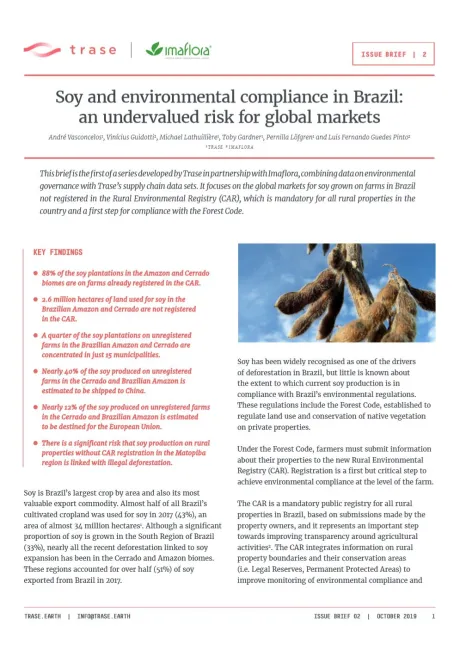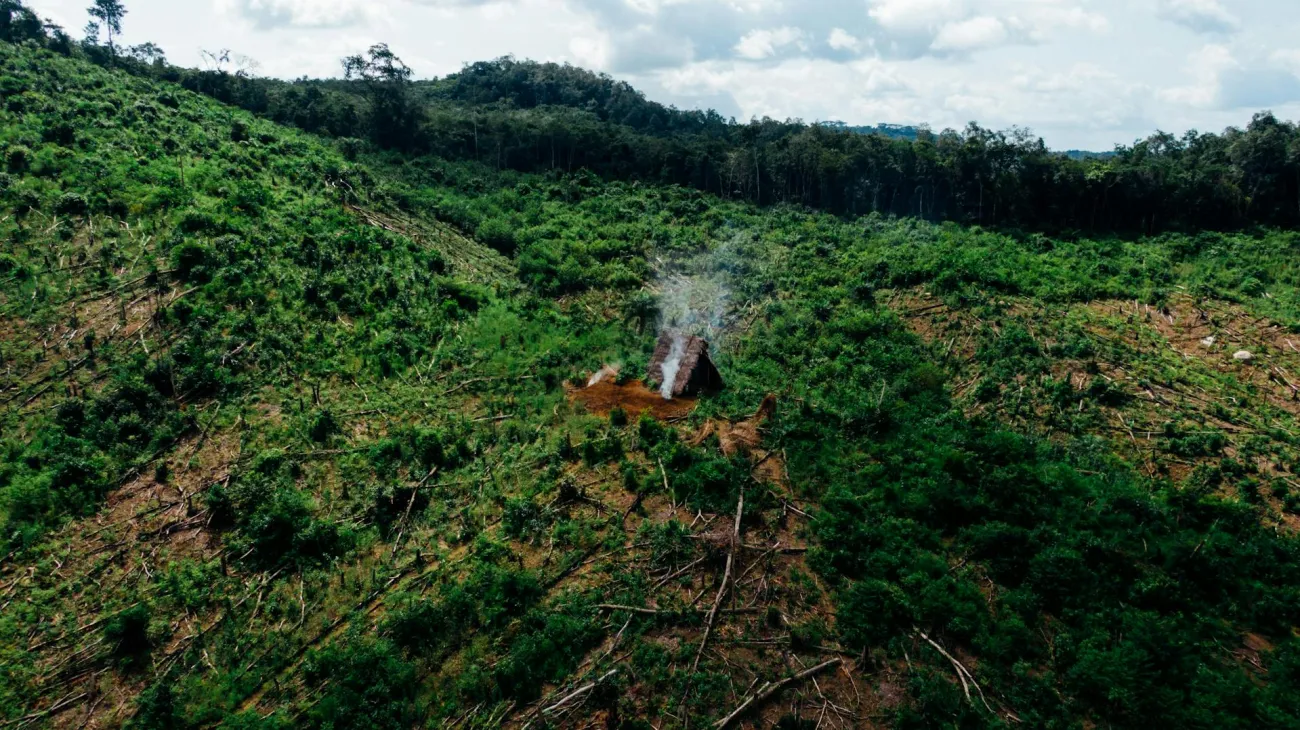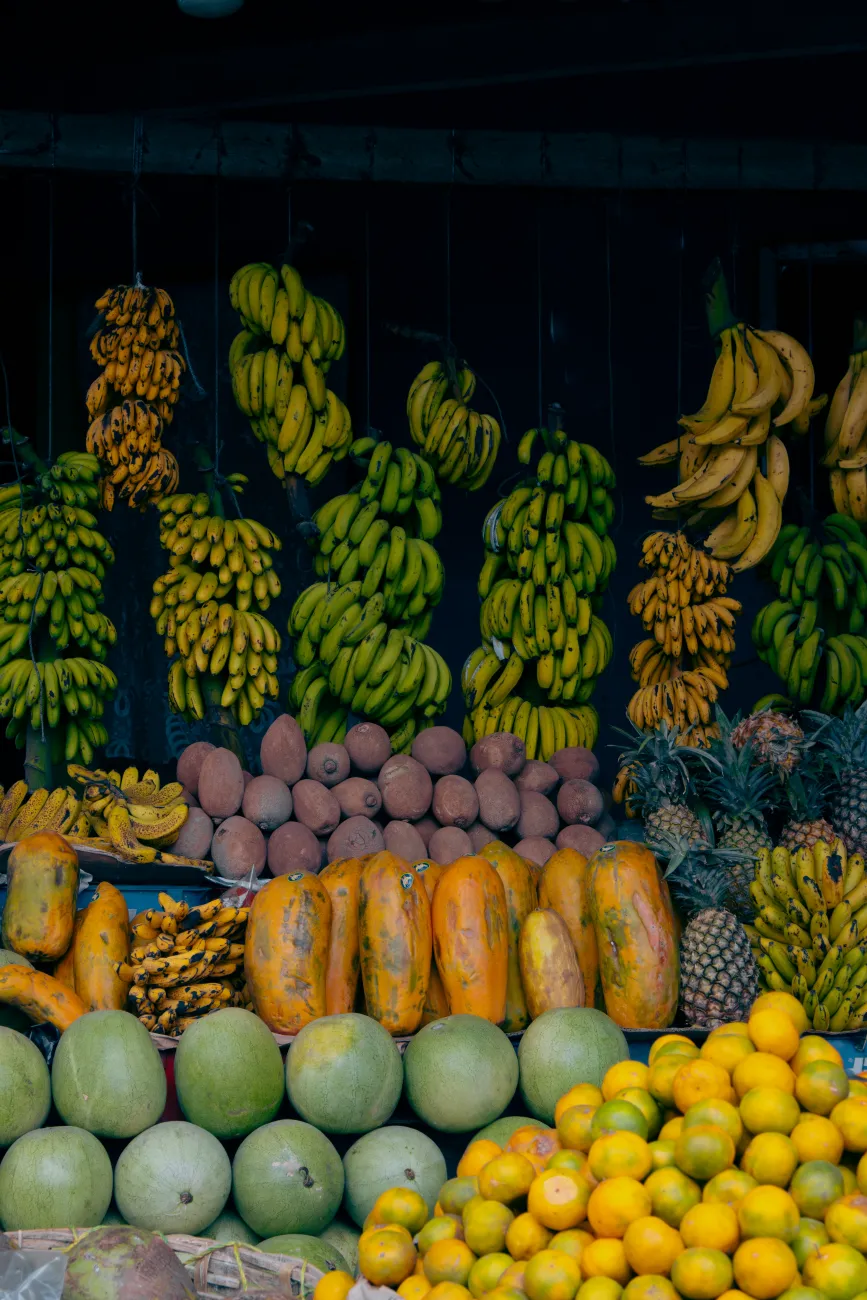This brief from Trase (a partnership between the Stockholm Environment Institute and Global Canopy) examines soy grown on unregistered farms in Brazil. Legally, farms in Brazil should be registered with the Rural Environmental Registry as the first step of complying with the Forest Code, which stipulates how much native vegetation should be left intact on private properties.

The report finds that two-thirds of the soy grown on unregistered Brazilian farms is exported, with the main importers being China and the European Union, as shown in the figure below - suggesting that buyers of soy do not always check that farms are properly registered.

Image: Figure 3, Vasconcelos et al. Main destinations of the soy grown on unregistered farms.
The brief calls for soy traders, industry associations, food manufacturers and retailers to incorporate a requirement for registration of soy farms into their sourcing standards.
Read the full brief, Soy and environmental compliance in Brazil: an undervalued risk for global markets, here (PDF link). See also the Foodsource resource What interventions could potentially shift our eating patterns in sustainable directions? and the report Moving to deforestation free animal feed: 2018 Retail Soy Initiative.




Comments (0)